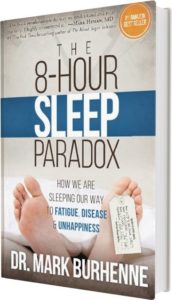Table of Contents[Hide][Show]
Obstructive Sleep Apnea. Most people associate sleep apnea with a snoring, overweight, middle aged man. This misconception, added to the fact that the consequences of obstructive sleep apnea don’t show up until decades later when the damage is already done, sadly leads to millions of people going undiagnosed. In fact, it’s likely that up to 80% of the population currently has some form of OSA that has not been diagnosed by a doctor.
If you grind your teeth, snore, or are a petite woman, you are likely at risk, which we now know thanks to the latest research which is helping us understand what exactly happens while we sleep.
In this post, I’ll explain what sleep apnea is and how your dentist can help treat it.
What Happens at Night That You’re Not Aware Of
While awake, upright, and breathing easily, when the chest begins to expand, air pressure inside the lungs becomes negative compared to air pressure outside the body, causing air to flow in through the upper airway.
Try this right now: try to inhale while keeping your mouth closed and pinching your nose closed. You’ll start to feel that negative pressure in your lungs skyrocket and the brain telling you desperately to stop and to start breathing again.
This is essentially what is happening to you if you have sleep apnea, except, during an obstructive sleep apnea episode, the airway gets closed from the inside instead of you plugging your nose and mouth.
Get Dr. B’s Dental Health Tips
Free weekly dental health advice in your inbox, plus 10 Insider Secrets to Dental Care as a free download when you sign up

Why Breathing Is Harder While We’re Asleep
For whatever reason, as humans we have an airway that is horribly flawed for breathing during sleep.
Your airway is a flexible mixture of bone, cartilage, and muscle. It’s easily obstructed during sleep for a few reasons:
- It’s soft and flexible, kind of like a ziploc bag.
- At the narrow space at the back of the throat, the tongue, throat, and soft palette all compete for space.
- It has to be held open by the muscles around the airway, kind of like how tent poles prop open a tent.
How Oral Appliance Therapy Keeps the Airway Open
Sleeping with a retainer-like device made by your dentist keeps the tongue and jaw in place during sleep to keep the airway open.
What this does is it allows your body to enter deep stage sleep because it can fully relax all the muscles without having to tense them back up again to be able to breathe again.
Most of us with obstructive sleep apnea have never experienced a true night’s sleep where the muscles had a chance to fully relax for over an hour for the full completion of a deep sleep cycle.
How Breathing Machines Keep the Airway Open
There are machines, like the CPAP and APAP, that can blow air into your airway, to keep it open, and make sure you’re able to access deep sleep.
However, a lot of people aren’t able to tolerate the CPAP because of the air pressure, so doctors are working with dentists to treat obstructive sleep apnea using a CPAP and and oral appliance, which fits like a mouth guard and keeps the jaw pushed forward to keep the airway open.
An APAP, which can also be used together with an oral appliance, can be a fantastic alternative for people who can’t stand sleeping with the CPAP. The APAP is like a CPAP in that it blows air from a face mask that you wear at night, however, it auto-adjusts the air blowing based on your needs, making it much easier to tolerate and sleep with.
What Deep Stage Sleep Is Like
Getting deep stage sleep every night is an entirely different ballgame for just about every aspect of your life.
One of my patients, after we treated her with oral appliance therapy for her moderate sleep apnea, came to my office a few months later to tell me her that treatment had “given her the courage to divorce her husband.”
She said it was like a fog had been lifted that she never knew was there.
Her experience is quite common because deep stage sleep eventually allows the brain to function at full capacity.
Deep stage sleep is when human growth hormone (HGH) is released. HGH controls various functions in the body, ranging from tissue repair, healing, and repair of the brain.
Missing out on deep stage sleep and HGH speeds up the aging process and makes us depressed, tired, fat, and much more prone to disease.
The Health Benefits of Deep Sleep
- Improved mental health
- Anti-aging effects, like skin tightening and wrinkle reversal
- Improved cardiac function
- Improved immunity
- Increased sustained energy throughout the entire day
- Fat burning and weight loss
- Improved skin and hair
What Deep Sleep Is Not
Just because you’re asleep for eight hours, doesn’t mean it’s healing and deep sleep.
Don’t fall for the eight hour deception — tossing and turning, grinding your teeth, or snoring are all indicators that you’re not getting deep stage, healing sleep — no matter how long you sleep or how “good” of a sleeper you are.
Who’s At Risk for Sleep Disordered Breathing
Sleep apnea can occur at all ages, sparing neither infants or the elderly, yet, more than half of people are 35 years or older when they get their diagnosis.
However, abnormal breathing during sleep usually comes before extreme daytime sleepiness and diagnosis of sleep apnea by at least a few years, so sleep apnea will show a worsening progression with time.
Any other sort of physical feature that can reduce the size of the airway can contribute to the cause of obstructive sleep apnea. For example, people with large tongues, large tonsils, small jaws, or large palettes can be predisposed to having sleep apnea. Petite women almost always fall into this category with their smaller necks, faces, and airways.
Takeaways
- Tossing and turning during sleep is not normal. If you can see that you adjusted your pillow in the middle of the night, this is not a good sign.
- Snoring and bruxism (teeth grinding) are not normal and are red flags for obstructive sleep apnea (OSA) or another breathing difficulty on the wide spectrum of sleep breathing conditions.
- Even mild sleep apnea should be treated. The effects of even mild sleep apnea, over a lifetime, can contribute to health consequences later in life.
- OAT (oral appliance therapy) can hold the jaw and tongue in place to keep the airway open and prevent apneas, or pauses in breathing.
- All the health benefits of sleep come from deep stage sleep.
- There are serious consequences when the body does not get to experience deep stage sleep.
Mark Burhenne DDS
How Do I Know If I Grind My Teeth at Night?Want to learn more? Check out my #1 Amazon bestselling book, The 8-Hour Sleep Paradox.
 This book will teach you how to achieve your highest quality sleep to become your best, brightest, most capable self.
This book will teach you how to achieve your highest quality sleep to become your best, brightest, most capable self.
This 3-step program will show you how you can get the kind of sleep that unlocks your ability to:
- Achieve your perfect weight by suppressing your appetite naturally
- Slow down the aging process
- Wake up happy and refreshed every morning
- Improve your energy levels, concentration and mental focus
- End daytime sleepiness and brain fog

 Sleep Apnea: The Real Reason You Grind Your Teeth?
Sleep Apnea: The Real Reason You Grind Your Teeth?